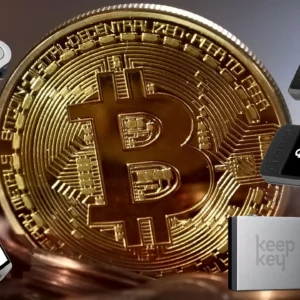Introduction
In recent months, headlines have been dominated by a staggering legal standoff between Binance and Nigeria’s $81.5B Tax Evasion Case. Dubbed one of the largest tax-related disputes in Africa’s history, the case—known widely as Binance and Nigeria’s $81.5B Tax Evasion Case—has stirred controversy, raised concerns about regulatory compliance in the crypto space, and drawn international attention.
With Nigeria being one of the largest cryptocurrency markets in Africa, and Binance a dominant player globally, this case has significant implications for crypto exchanges operating across emerging economies. However, beyond the enormous dollar figure and the courtroom drama lies a complex narrative of regulatory ambiguity, economic challenges, political pressures, and global digital finance.
The trial, originally scheduled for an earlier date, has now been delayed—raising questions about due process, international legal cooperation, and what the future holds for cryptocurrency in Nigeria. This blog explores the major developments, causes of the delay, and the broader impact of Binance and Nigeria’s $81.5B Tax Evasion Case on the crypto industry.

1. The Genesis of the Dispute
To understand the full scope of Binance and Nigeria’s $81.5B Tax Evasion Case, it’s essential to explore how it all began. The Nigerian government accused Binance, the world’s largest cryptocurrency exchange by trading volume, of failing to comply with tax obligations, including value-added tax (VAT), corporate income tax, and withholding taxes on transactions involving Nigerian users.
Allegedly, Binance facilitated billions of dollars in crypto transactions without registering properly with Nigerian tax authorities. Government officials claim that this negligence not only violated local tax laws but also enabled illicit financial flows, money laundering, and currency speculation that worsened Nigeria’s already fragile naira.
The alarm was raised when financial watchdogs noticed increasing volumes of crypto transactions bypassing traditional financial institutions. Binance’s peer-to-peer (P2P) platform, in particular, was cited as a major channel for unregulated currency exchange activities.
In February 2024, Nigerian authorities detained two Binance executives who had flown into the country for negotiations. Their arrest fueled international scrutiny, and from that moment on, Binance and Nigeria’s $81.5B Tax Evasion Case became a global legal saga.
2. Legal Framework and Regulatory Confusion
One of the most challenging aspects of Binance and Nigeria’s $81.5B Tax Evasion Case is the regulatory environment surrounding cryptocurrencies in Nigeria.
Although the Central Bank of Nigeria (CBN) had previously banned banks from dealing with crypto-related businesses in 2021, that policy was later softened. Meanwhile, the Nigerian Securities and Exchange Commission (SEC) has issued conflicting guidance about how exchanges should be registered and taxed.
This ambiguity has created a legal grey area where Binance operated with limited oversight, exploiting regulatory loopholes. The Nigerian government, however, insists that Binance’s operations amounted to illegal tax evasion.
Tax experts argue that without clear legislation on digital assets, it’s difficult to establish the legal grounds for an $81.5 billion claim. Still, Nigerian authorities maintain that the amount reflects cumulative revenue losses over years of unregulated operations.
Binance has pushed back, claiming it made good-faith efforts to comply with local regulations and had opened dialogue with regulators before the arrests occurred. The delay in the trial further highlights the complexities of navigating Binance and Nigeria’s $81.5B Tax Evasion Case, especially given the international nature of the company and the lack of precedent.
3. Impact of the Trial Delay
The postponement of the trial in Binance and Nigeria’s $81.5B Tax Evasion Case has generated confusion and concern among industry observers, investors, and Nigerian crypto users. Initially set to begin in March 2025, the trial was delayed due to procedural issues, a change in legal counsel, and lack of cooperation from some involved parties.
While delays are not uncommon in high-profile financial cases, this specific postponement raises a few critical questions:
-
Is Nigeria struggling to build a solid case? Some legal analysts suggest the government may have overestimated its evidence and is now backtracking to refine its strategy.
-
Is this part of a negotiation strategy? Others speculate that the delay could be a tactic to push Binance into a settlement or compliance agreement.
-
How does this affect detained executives? Prolonged legal uncertainty has left the two detained Binance executives in limbo, raising human rights and diplomatic concerns.
For the broader crypto community, the delay in Binance and Nigeria’s $81.5B Tax Evasion Case is both a relief and a warning. On one hand, it allows Binance more time to prepare its defense; on the other, it signals that governments are willing to take aggressive steps against non-compliant crypto firms—even if legal systems aren’t fully ready to handle such complex cases.
4. Global Repercussions and Industry Response
The fallout from Binance and Nigeria’s $81.5B Tax Evasion Case is being felt beyond Nigerian borders. Crypto markets initially reacted with volatility following the announcement of the charges, and other African nations are now re-evaluating their own regulatory frameworks for digital assets.
In response to the case, exchanges operating in Africa—including Luno, KuCoin, and Paxful—have increased compliance efforts, seeking licenses where available and tightening user verification procedures.
Meanwhile, Binance has faced mounting pressure from regulators around the world. In the U.S., the SEC and CFTC have ongoing investigations into Binance’s operations. In the EU and Asia, regulators are watching how the Nigerian case unfolds before making new policy decisions.
The delay in Binance and Nigeria’s $81.5B Tax Evasion Case has not deterred governments from asserting control over the digital finance space. If anything, it has highlighted the urgency of creating unified, transparent, and enforceable crypto regulations. Without it, major exchanges risk similar confrontations in other jurisdictions.
5. Crypto in Nigeria: Where Do Users Stand?
Nigeria has one of the highest rates of cryptocurrency adoption in the world. Despite bans and restrictions, millions of Nigerians use crypto for remittances, savings, and business transactions. With the naira’s value plummeting due to inflation and economic mismanagement, crypto provides a lifeline for many.
However, Binance and Nigeria’s $81.5B Tax Evasion Case has cast a shadow over this growing ecosystem. Following the charges, Binance temporarily suspended naira trading, leaving users in a difficult position. Many reported being unable to access funds or complete transactions.
This disruption has reignited debates about the role of centralized exchanges versus decentralized finance (DeFi). If centralized platforms are vulnerable to government crackdowns, users may gravitate toward more anonymous, decentralized solutions—though these come with their own risks.
Additionally, there’s a trust gap growing between Nigerian authorities and the youth-dominated crypto community. The government’s harsh stance, paired with the trial’s delay, makes it seem more like a political power move than a genuine attempt at regulation.
Regardless of the trial’s outcome, Binance and Nigeria’s $81.5B Tax Evasion Case is likely to shape the future of crypto adoption and regulation in Nigeria for years to come.
Conclusion
The story of Binance and Nigeria’s $81.5B Tax Evasion Case is far from over. What began as a regulatory dispute has ballooned into a high-stakes international legal drama with implications for crypto regulation across Africa and beyond. The delayed trial, rather than resolving uncertainties, has deepened them—forcing governments, exchanges, and users alike to reevaluate their roles in the digital finance landscape.
For Binance, the case represents one of its most serious legal threats to date. For Nigeria, it’s a litmus test of its ability to assert digital sovereignty and enforce compliance from global tech giants. And for the wider crypto world, it’s a reminder that regulation is no longer optional.
As the trial unfolds in the coming months, all eyes will be on the courtroom—but also on the broader financial implications. Will Binance strike a deal? Will Nigeria strengthen its regulatory framework? Will this case trigger a wave of crypto crackdowns across Africa?
We’ll be watching closely.
What are your thoughts on Binance’s case in Nigeria? Do you think the government is justified, or is this an overreach? Leave a comment below and join the conversation







This Post Has One Comment